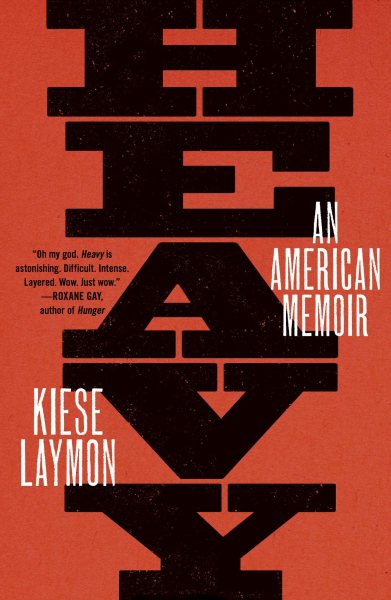One reason we read is to escape from ourselves and see others, particularly others who aren’t like us. And simultaneously, one reason we read is to find ourselves, to be seen by someone else. For me, Kiese Laymon’s Heavy: An American Memoir occupies both of these spaces effortlessly.
 Although, effortless is a bit misleading. In interviews, conversations, and in the very content of the book, Laymon admits that Heavy was difficult to write. It was necessary. This duality persists throughout the layers of the memoir. The relationship Laymon describes with his mother is at times toxic, but is also nurturing, sincere, and life-giving. The relationship Laymon has with his own body and food moves between destructive and healthy. Growing up as a brilliant black child in Mississippi is both “burden and blessing,” to borrow Laymon’s own words. In the face of one-dimensional, monolithic, unimaginative stereotypes, Laymon spits nuance and grace and honesty—honesty that is gritty and soothing, that captures the “contrary states of the human soul,” as William Blake says.
Although, effortless is a bit misleading. In interviews, conversations, and in the very content of the book, Laymon admits that Heavy was difficult to write. It was necessary. This duality persists throughout the layers of the memoir. The relationship Laymon describes with his mother is at times toxic, but is also nurturing, sincere, and life-giving. The relationship Laymon has with his own body and food moves between destructive and healthy. Growing up as a brilliant black child in Mississippi is both “burden and blessing,” to borrow Laymon’s own words. In the face of one-dimensional, monolithic, unimaginative stereotypes, Laymon spits nuance and grace and honesty—honesty that is gritty and soothing, that captures the “contrary states of the human soul,” as William Blake says.
Personally, my relationship with Heavy is equally divergent. I’ve never been on the harsh end of a culture that devalues the lives of black Americans. Yeah, one of the only fistfights I’ve been in was defending a black friend from a racist prick in 8th grade, but I’ve never been part of a group systematically and culturally denied access by a majority. Laymon’s book shows me what it’s like. My family has had its share of trauma, but not the type of trauma Laymon’s has. His book helps me understand a type resilience I’ve never needed.
But I’m a big fella. I’ve done my share of emotional eating. I’ve had horrible conversations with myself about how to make my body smaller and, at times, questioned whether taking care of my body was worth the effort. Yes, men do have vastly lower and fewer expectations for how we should look, but we aren’t without some pressure to fit into molds. How to fit into a mold when I barely fit into some t-shirts? Laymon’s book reminds me that I’m not alone in this. I am seen and valid and broken and beautiful. Heavy can mean “excessive,” or “burdensome,” but it can also be “important.” I’m glad to have the weight of this memoir, where it touches me and where it leaves me.
Kiese Laymon will be at Millsaps at the Gertrude C. Ford Academic Center on Wednesday, October 17, at 5:00 to sign and read from Heavy.


Comments are closed.